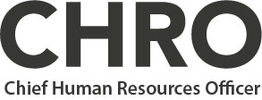Connecting drivers for business success with organisational excellence boosts HR’s value proposition, says seasoned HR executive Richard Teurlings

"If you don't deeply understand what factors drive the success of your business or you do not know how to translate these in a best-fit organisation, it is difficult to maximise HR’s contribution to sustained optimal business performance," says long-time CHRO, Richard Teurlings.
Teurlings, who has worked in HR for some 30 years, for multinational companies including Refresco Gerber Holding, DSM, Gist-brocades, and Genencor International (Dupont), opines that HRM’s value proposition can become much stronger if it excels not only in professional HR but also is able to take the lead in creating organisational excellence.
HR management today has many challenges, one of which is to support management on improving company or business performance sustainably. Adding value here works through optimising not only the people side but also the organisational side, says Teurlings. The seasoned professional believes that performing best-fit HR management is not enough and says HR should also take the lead in advising on the best-fit organisation, culture and managerial set up to enable maximised business performance. “Nowadays HR people are educated thoroughly in HR management, labour law, economy, business administration, psychology, and the like. A big plus compared to the early days where most HR managers had single-dimension educations like psychology, law or history. But still today, well-educated and experienced HR managers hesitate to take the lead in creating impact through advising management on the best-fit organisation in combination with HR management policy, instead they may prefer to stay close to people management only – the professional comfort zone,” he says. “To me, this is a missed opportunity to add significant value to the business and I would advocate that the way to go for HR is to connect business understanding with HR management and organisational excellence to be a real business partner.”
Teurlings says that from early in his career he started to realise that combining HR management with understanding of the organisational, culture and managerial set up was key when advising management on the way forward in achieving a high-performing, efficient and agile organisation. As such, he believes it is crucial that HR spend considerable time with decision makers and staff to get across how business performance could be hampered or enhanced by tuning both people management and the organisational set up. However, he says, you have to be credible and this cannot be done if one doesn’t fully understand the business and its operations. “Unfortunately in frequent occasions the leadership puts the organisational help request to external consultants, whereas using internal ‘organisation competence’ from the HR function – when it is there – has a much better chance of successful implementation and pay back at lower cost. An HR director should always be ahead of this and build their own views on what changes in the organisation would enhance performance sustainably or better realise the company goals and actively approach leadership.”
On the subject of organisational change, a good HR director should build their own initiative, he says. “You’re part of the driving team and you are in a unique position. As HR you have an understanding of company strategy, business plans, business performance and an overview of all functional areas that your colleagues do not have, or have but on a more limited basis. You also know the people and the organisation. So you are in an excellent position in terms of information close to general management, which allows you to have your own views on how to develop the organisation and enhance the business performance.”
With regards to the relevance of HR in business today, Teurlings says gone are the days when HR managers got recognition simply because they were good at administration, dealing with unions and the like. Today, they bring far greater value. “HR is so committed and ingrained in the business and the long-term company goals that they are able to anticipate the organisation’s needs in future and advise the leadership on the change path and developments required over time,” he says. “A while ago the term ‘business partner’ came along. A CHRO, I think, is not just a business partner, he or she is an enterprise partner sometimes operating on the same level as a COO.”
Asked what his vision for the future of HR looks like, Teurlings says he assumes any CHRO to have a position in the executive team. “In some organisations I could even imagine that HR people are on the management board,” he says. “Certainly in industries where people are in fact the company’s assets or where organisational performance and cost is a key factor in driving the bottom-line result, I think, companies could really benefit from HR people in the leadership team overlooking the combination of HR, organisation and company strategy.”
He adds that there are many elements which a good HR director can tweak in favour of a good business result, provided they have a seat at the table to demonstrate this value. “I think that HR is too modest regarding what they could deliver,” he says. “If the business requires an agile organisation capable of responding to changing market circumstances, HR is the first to come up with a plan to realise the changes required and find the right solutions. HRM&O is nowadays ready to move from helping and executing change to also initiating and shaping the change required where an organisation is concerned.”














